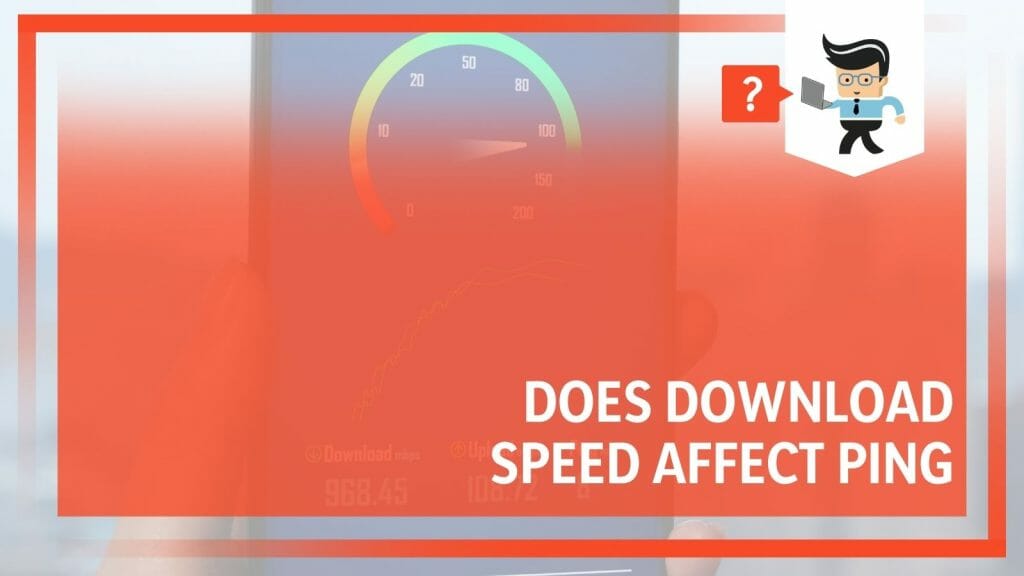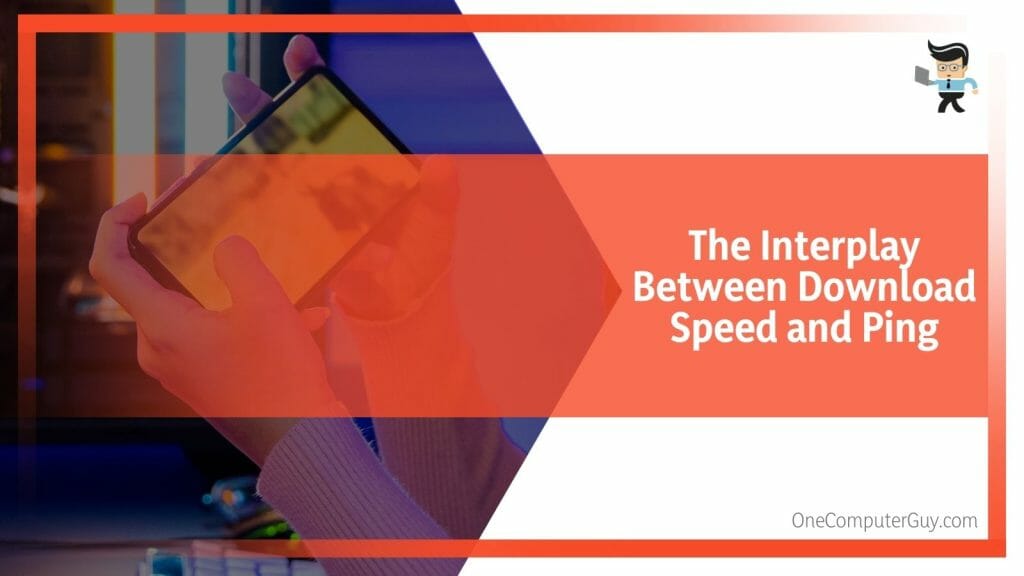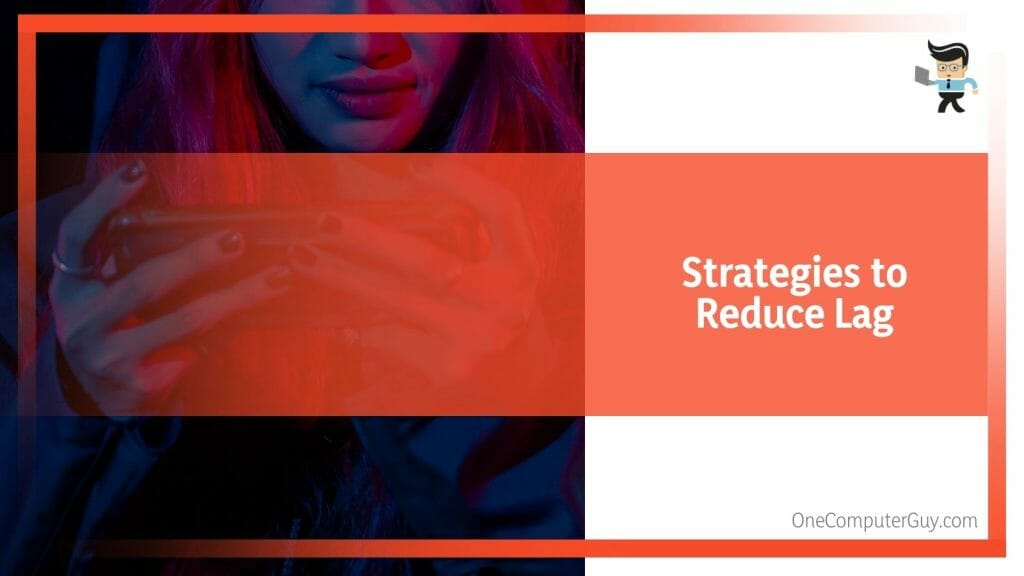Does download speed affect ping is a concern that, as dedicated internet users, we’ve all wondered this at some point, especially when our gaming experience suffers unexpected hiccups.
It’s not just about download speed; factors like upload speed, the reliability of our internet connection, and even the type of ethernet cable used for a wired connection can also influence our ping rate.
Let’s delve into these surprising insights and reveal how optimizing these parameters could significantly enhance your online gaming performance and video streaming experience.
Contents
- What Are the Effects of Download Speed on Ping? Common Outcomes
- – Understanding Download Speed: A Closer Look
- – Ping Explained: Decoding the Key to Your Gaming Experience
- – The Interplay Between Download Speed and Ping
- – Myths and Realities: Higher Download Speed Guarantees Lower Ping
- – Strategies to Reduce Lag: Beyond Download Speed
- – Choosing the Right Internet Plan for Optimal Gaming Experience
- – Navigating Through Internet Providers: Ensuring a Stable Connection
- – Optimizing Your Gaming Setup: Ethernet and Wired Connections
- FAQs
- Conclusion
What Are the Effects of Download Speed on Ping? Common Outcomes
The effects of download speed on ping are complex because faster download speeds sometimes result in lower (better) ping times. The quality of your internet speed and network latency influences ping. However, extremely low download speeds could indirectly impact ping times, although this is atypical.
We’ve likely all pondered this question as we face those inevitable lags during a high-stakes gaming session. But let’s first demystify these terms – ‘download speed’ and ‘ping’.
Download speed refers to the pace at which data is transferred from the internet to your device. On the other hand, ping measures the time it takes for data to travel from your device to your server and back. Ping is typically measured in milliseconds (ms), and a lower value signifies a better gaming experience.
Now, does having a higher download speed guarantee lower ping? Not necessarily. A higher download speed could mean faster downloads and less buffering during video streams, but it doesn’t inherently reduce lag or lower your ping rate. Ping is more closely related to the latency of your internet connection rather than its speed.
There are still ways to improve your gaming experience. One key factor is your internet plan. Basic plans may not offer the stability and speed needed for seamless gaming. Understanding the recommended internet speed for your preferred games is crucial, and ensuring your plan meets that requirement.
Moreover, different Internet providers offer varying levels of service. Some might have more reliable connections that result in lower ping rates, even if their download speeds are lower. Hence, it’s worth researching and comparing different providers to find one that best suits your needs.
So, while download speed might not directly affect ping, it’s part of a network of factors determining your gaming experience. Tracking these factors can help you choose the right provider, plan, and set-up to reduce lag and enhance your time in the gaming world. Remember, every millisecond counts!
– Understanding Download Speed: A Closer Look
When we talk about download speed, we’re referring to the pace at which data transfers from the internet to your device. This factor is generally measured in megabits per second (Mbps) or gigabits per second (Gbps) for high-speed connections. Download speed dramatically affects how quickly you can access websites, download files, or stream content.
For instance, if you’re streaming a movie, a higher download speed means you’ll spend less time buffering and more time enjoying your content. But remember, faster download speed doesn’t always equate to a smoother online experience. Several other factors come into play, including the quality and stability of your internet connection.
– Ping Explained: Decoding the Key to Your Gaming Experience
On the other hand, Ping is a term often used by gamers to denote the time a data packet takes to travel from your device to a server and back. Unlike download speed, ping is not about the volume of data transfer but about the time. It’s typically measured in milliseconds (ms).
The lower the ping rate, the less delay you’ll experience, leading to smoother gameplay. For example, in a fast-paced online game, a lower ping means your actions will be registered more quickly, giving you an edge over players with higher ping rates.
– The Interplay Between Download Speed and Ping
At first glance, it might seem logical to associate faster download speeds with lower ping rates, but these two metrics are mainly independent. Download speed affects how quickly you can receive data, such as loading a webpage or downloading a file.
However, ping is about the delay (or lack thereof) in data communication. It’s possible to have a high-speed internet connection with high ping rates, especially if the connection stability is poor or there are network congestion issues. Similarly, a slower connection might deliver low ping rates if it’s stable and free of congestion.
– Myths and Realities: Higher Download Speed Guarantees Lower Ping
One common belief is that a higher download speed will automatically translate into a lower ping.
While it’s true that a prolonged connection can cause higher ping rates (as the bandwidth might be entirely consumed by data transfers, leaving no room for timely communication), once a certain threshold of download speed is crossed, further speed increases don’t necessarily improve ping.
– Strategies to Reduce Lag: Beyond Download Speed
Reducing lag in gaming requires more than just focusing on download speed. A primary strategy involves managing network congestion. This might mean scheduling heavy downloads for off-peak hours or investing in a quality router that efficiently works traffic.
Secondly, the type of connection you use matters. Wired connections typically offer more stability and lower latency than their wireless counterparts.
Consider optimizing game settings as well. Many games allow you to adjust settings to prioritize performance over aesthetics. This can drastically reduce demand on your system and minimize in-game lag.
Finally, consider using gaming-centric network tools. Some software options prioritize gaming traffic in your network or connect you to game servers via optimized routes, reducing lag.
– Choosing the Right Internet Plan for Optimal Gaming Experience
When selecting an internet plan for gaming, consider the download speed and the connection quality. While ISPs often advertise their plans based on download speed, remember that a higher rate won’t necessarily reduce your ping.
Evaluate the consistency and reliability of the connection. Some providers may offer a ‘gamer-specific’ package with traffic-shaping technology that prioritizes gaming data. Consider the upload speed as well – it’s crucial for online gaming, especially if you’re into live-streaming your games.
Choosing the right internet provider is as important as selecting the best internet plan.
Not all providers are created identically, and the quality of service can significantly vary. Consider providers known for their stable connections and excellent customer service. Look at their performance during peak usage hours and any added gaming benefits.
Research and seek recommendations from fellow gamers in your area. Local gaming communities often have insights into which providers offer the most reliable gaming service.
– Optimizing Your Gaming Setup: Ethernet and Wired Connections
While Wi-Fi has conveniences, a wired Ethernet connection can often offer a more stable and faster internet experience, significantly reducing your ping.
A direct link to your router via an Ethernet cable can prevent common wireless issues such as interference and signal loss. For serious gamers, it might be worth running an Ethernet cable to your gaming setup. If that’s not possible, consider a powerline adapter, which uses your home’s electrical wiring to transmit the internet signal.
In conclusion, optimizing your gaming setup for lower ping is a holistic process that involves various factors. While having a good download speed is part of the equation, other factors like a stable internet connection, a suitable internet plan and provider, and a reliable gaming setup also play a significant role.
FAQs
– What Is the Relationship Between Download Speed and Ping?
The relationship is that download speed refers to how much data can be transferred per second, whereas ping measures the time it takes to travel from your device to a server and back. A higher download speed does not necessarily result in a lower ping rate.
– Will Upgrading Your Internet Plan Lower Your Ping?
No, upgrading the internet plan does not lower your ping. While a higher-speed internet plan may improve your overall internet experience, it doesn’t guarantee a lower ping. However, some internet service providers offer gamer-specific programs prioritizing gaming data, potentially improving your ping.
– Are There Specific Internet Providers Better for Gaming?
Yes, the performance of internet providers varies significantly, and some may be better suited for gaming. When choosing a provider, consider their reputation for stability and performance during peak usage hours. Local gaming communities often provide valuable insights into the best providers in your area.
Conclusion
Navigating the complex dynamics between download speed and ping can often feel overwhelming. Yet, understanding this relationship becomes crucial when optimizing our online experiences, especially in gaming, so let’s summarize the key insights from our discussion:
- Download speed and ping are two distinct measures of internet performance, with the former indicating data transfer rate and the latter denoting the speed of data travel.
- A higher download speed doesn’t necessarily guarantee a lower ping, as ping is more influenced by network latency and connection quality.
- Strategies to reduce lag encompass various elements beyond download speed, such as managing network congestion, optimizing game settings, and leveraging gaming-centric network tools.
- Choosing the right internet plan and provider involves considering consistency, reliability, and gaming-specific benefits, not just download speed.
While seemingly technical, these insights can empower users to make informed decisions, enhancing our online experiences. Remember, when it comes to improving your gaming experience, it’s about understanding the whole picture, not just one aspect.







